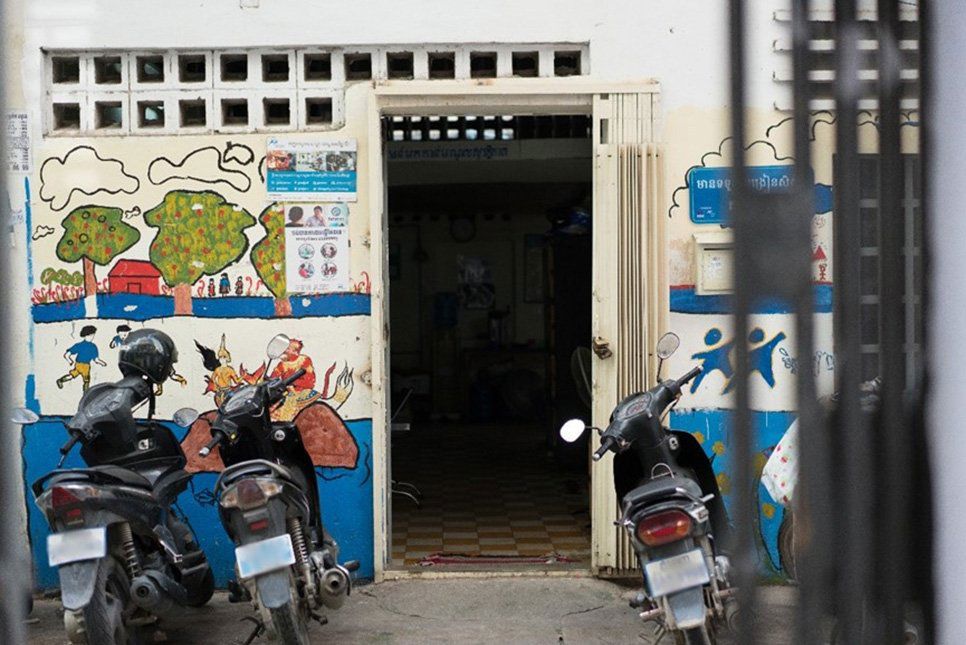Gilead recently launched one of these drugs for $100/pill in China
Médecins Sans Frontières (MSF) has filed a legal patent challenge in China against US pharmaceutical corporation Gilead’s patent application for the combination of two crucial oral hepatitis C medicines, sofosbuvir and velpatasvir. This combination is the first direct-acting antiviral (DAA) treatment to be registered for use against all genotypes* of the disease. Rejection of patents for this combination would pave the way towards the availability of affordable generic versions of this treatment that millions of people need in China and around the world.
The legal challenge, filed at the China State Intellectual Property Office (SIPO), offers technical grounds to show that the drug combination does not merit patenting under China's Patents Law. If granted, the unjustified patent on the combination of these two medicines would give Gilead the monopoly over production and sales of the treatment in China. It would block Chinese generic companies from producing affordable versions, for use in China and globally.
“Despite the deadly toll the hepatitis C epidemic takes, pharmaceutical corporations like Gilead still have far too much control over who can access these lifesaving medicines, which is ultimately costing people their lives,” said Mickael Le Paih, Head of Mission for MSF in Cambodia. “In some high-burden countries where we work, hepatitis C treatment is not readily available due to high prices. Leveraging China’s ability to produce more affordable generics could significantly increase competition and bring prices down further, allowing many countries to get treatment to more people, faster.”
Globally, an estimated 71 million people have chronic hepatitis C infection and without access to treatment, nearly 400,000 people die each year from its complications. With nearly nine million people infected, China has the highest prevalence of hepatitis C in the world. Yet access to these medicines that have proven to be a major breakthrough for the treatment of hepatitis C remains limited in China and many other middle-income countries due to exorbitant pricing.
In China, Gilead recently announced the market launch of sofosbuvir at a prohibitive price of US$8,937 per treatment course, or around $100 per pill. The price of the sofosbuvir and velpatasvir combination is still not known in China, as the treatment is not yet registered or available in the country; but using sofosbuvir at Gilead’s price, in combination with another DAA, daclatasvir, would cost about $12,000 for the 12-week treatment. Generic competition has driven the price of this same treatment combination to as low as $120 per 12-week treatment in countries where patent barriers no longer exist.
“With this patent challenge, MSF hopes to prevent Gilead from getting unmerited patent rights on the combination of sofosbuvir and velpatasvir, which would allow them to charge unreasonably high prices,” said Yuanqiong Hu, Legal Advisor for MSF’s Access Campaign. “The world desperately needs more affordable sources of these essential hepatitis C medicines to save lives and contain this growing epidemic, and the best way to achieve this is to open the door widely to robust competition among generic producers.”
Gilead has applied for multiple patents in China for its hepatitis C medicines, and some of these are being opposed by other pharmaceutical companies and nonprofit organisations based on similar grounds of being unmerited under China's Patents Law. Since 2015, SIPO rejected two key patent applications for sofosbuvir in China. Gilead’s patent applications on sofosbuvir and its combinations have also been challenged in many other countries, including Brazil, India, Russia, the United States and in the European Union, and some of the Gilead’s patent applications have been rejected in Argentina and Egypt.
---------------------------------
*There are 6 genotypes of Hepatitis C virus (HCV). A single direct-acting agent (DAA) acts only on one or some genotypes, while the combination of several DAAs can act on all genotypes of HCV, which is called pan-genotype DAA treatment. The patent application which MSF is opposing is regarding 2 DAAs – sofosbuvir and velpatasvir – a pan-genotype combination. Alternatively, the combination of sofosbuvir and daclatasvir (another DAA available in China, marketed by Bristol-Myers Squibb, BMS) is also a pan-genotype treatment.
MSF treats people with hepatitis C in 11 countries (Belarus, Ukraine, Pakistan, Uzbekistan, India, Myanmar, Cambodia, Uganda, Kenya, Mozambique, South Africa). Since 2015, MSF has provided DAA treatment to over 5,000 people with hepatitis C. Of those who have completed treatment to date, the overall cure rate – measured by ‘sustained viral response’ – is 94.9 per cent.
Reading materials



